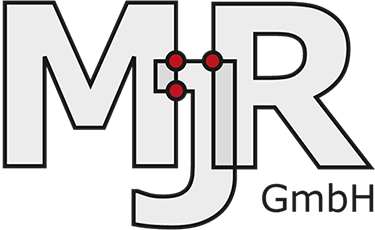Inhalt

Marcel Kosel
Sales Manager
Your partner for ERP and technology
Increasing efficiency in challenging times
In the ever-evolving manufacturing landscape, companies face increasing challenges. Especially in times of inflation, supply chain disruptions and uncertainty, it is crucial to optimize processes. This is primarily to protect and improve EBIT (earnings before interest and taxes). This is where enterprise resource planning (ERP) systems come into play. In this blog post, we will explore why ERP systems play an indispensable role in manufacturing today.
The relevance of ERP Systems in manufacturing
The current economic situation is characterized by fluctuations and uncertainty. In this complex environment, process optimization is gaining critical importance. ERP systems offer seamless integration of different business areas, from production to warehouse management to sales. This enables increased transparency, more efficient processes and improved decision-making.
Efficiency in difficult times – inflation and supply chains
Rising inflation and supply chain issues require smart management of existing resources. ERP systems enable automation of routine tasks and real-time monitoring of production. This enables bottlenecks to be identified and resolved quickly, ultimately leading to increased efficiency. The savings achieved can help counteract the current economic challenges.
Agility and quality assurance
In times when markets fluctuate unpredictably, agility is a crucial factor for business success. ERP systems provide real-time data that enables companies to react quickly to market changes and adapt their strategies. At the same time, ERP systems play a critical role in quality assurance. Complete traceability of products enables quick identification of quality problems and implementation of measures for improvement.
Compliance and sustainability
Regulatory compliance and sustainability goals are essential today. ERP systems make it easier to meet these requirements by helping companies keep track of their processes and supply chains. This not only contributes to compliance, but also enables companies to position themselves as responsible players in the industry. You always have the sustainability aspects in view.
Conclusion manufacturing optimization and ERP Systems
The importance of ERP systems in manufacturing is greater today than ever before. In times of inflation, supply chain issues and other uncertainties, efficient processes are the key to success. ERP systems provide the agility, quality assurance, compliance and sustainability needed to successfully meet these challenges. Companies that invest in ERP systems are better equipped to increase efficiency, protect their EBIT, and ultimately maintain and grow their competitiveness.
We will be happy to advise you on suitable solutions for your pain points. Contact us and we will optimize your production landscape together!

Contact us here
Marcel Kosel
Sales Manager








